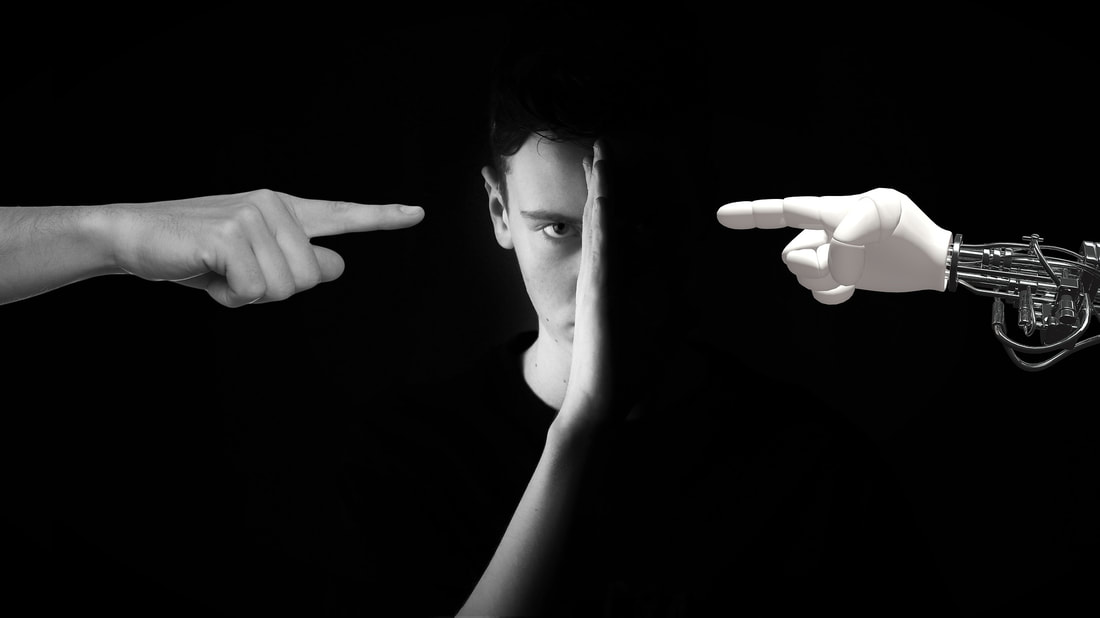|
‘To lead real change, it’s not enough to think outside of the box. We need to think outside of the building.’ (Rosabeth Moss Kanter) Picture this. I’m in a coaching conversation with Anna, a client who feels stressed. She describes it as being like trapped inside a box, with no way out; where the box is her organisation, her job, the role she’s in now. The narrative she’s telling herself is that she has no possibility to escape from the debilitating pressure she’s experiencing. Her scope of authority to influence change is too constrained and she’s expected to deliver against targets that feel impossible. She feels totally helpless and hopeless. I acknowledge and empathise with how Anna is feeling, then ask if she’d be interested to explore potential options that could be available to her. At first, she pushes back, as if instinctively. ‘I don’t have any options – that is the problem’. I ask, inquisitively, to test the boundary a bit: ‘You could leave?’ ‘I can’t leave’, she replies, immediately and forcefully, ‘I have a mortgage to pay’. ‘So, the mortgage is part of the box?’, I ask. ‘Hmm. I guess it is’, she replies, more thoughtfully this time. ‘What if you weren’t to pay the mortgage?’, I ask. She looks bemused. ‘It would mean I’d lose the house, of course’, she snaps. ‘And, if you lost the house?’ ‘That would be terrible’, she replies, ‘It’s my dream home.’ ‘So, the dream home is, perhaps, part of the box?’ I ask. Anna goes quiet. After a while, she looks up and responds, ‘I don’t want to lose my home.’ ‘So: it’s as if, to keep your dream home, you feel that you have no option but to stay in your current job to pay your mortgage?’ ‘Yes.’ ‘Imagine now, for a moment, dismantling or breaking out of the box that you feel trapped in. If you were to imagine a spectrum of options, ranging from the status quo to what you might think of as a most extreme solution (the ‘nuclear option’), what might they be?’ Anna picks up a piece of paper and a pen and starts to write. ‘At the extreme end, I could sell the house and downsize to a cheaper house or location, then I could get try to get a less expensive mortgage, but I don’t want to do that.’ ‘At the other end, I could stay as I am and just accept that the frustration in my job is a price worth paying to keep the house that I love.’ ‘And..?’, I ask. ‘I guess I could apply for another job.’ ‘Say more?’ ‘Well, I could look at other jobs in my organisation.’ ‘Yet the organisation sounds like it may be part of the box too? What if you were to think outside of the box altogether?’ ‘True. I could look at job opportunities elsewhere, or even at a change of career that would feel more fun and fulfilling!’ ‘So, there are, perhaps, some options that could feel in tension for you? The house…or a career that could feel more fun and fulfilling? Which stands out as most important for you?’ ‘I hadn’t thought about it, but if I could find something I really love doing, I might just be willing to consider moving house to do it. Perhaps I’m allowing my attachment to the house to box me in.’ Suddenly, I see a lightbulb moment flash in her eyes. ‘Eeek…’ she says, ‘Perhaps the house is the box!’ Breakthrough. Anna has left the building. [See also: Boxes; Deconstructing the box; and Lateral instinct]
42 Comments
‘Truth is the first casualty of war, they say. In fact, it’s more often freedom and reason.’ (Brendan O’Neill) I was wrong. I didn’t imagine that Russia would actually launch a full-scale assault on Ukraine. I felt sick, shocked and dismayed as the news unfolded this week. I can only imagine how it must feel for Ukrainians to find their country under attack and for Russians to discover their country has started a war. I felt near-despair too as I listened to rhetoric in the UK Parliament and media in the immediate wake of the invasion, denouncing neo-fascist Russian nationalism and imperialism whilst, at the same time, silencing any voices of dissent here with words like ‘appeasement’ and ‘treason’. There are insights from various psychological fields that can help us, yet we know from arenas such as cognitive and human givens therapies that our receptivity and ability to reason is impacted profoundly when overwhelmed by feeling. Emotions like anger, resentment and fear are running high at the moment; and understandably so because this crisis and all that it could mean are very real and being experienced by real people, families and communities here-and-now – and that makes it hard to think clearly. Yet we must think, and pray, and act with wisdom, and quickly. I can only guess what’s in Putin’s mind. The geopolitical dimensions to this conflict are complex and well beyond my ability to know or understand. I can, however, speak as a citizen or the West. I spent many years working closely with an anti-Nazi activist in Germany. I learned that we need to pay very careful attention to the conditions in which otherwise insane decisions will appear and feel rational. Hitler and the Nazis were supported and elected in Germany by many with great enthusiasm against a specific contextual backdrop: in Gestalt psychology, the ‘ground’ that gives rise to a ‘figure’. The ’ground’ out of which the current crisis has developed is very complex indeed. It includes: a long cultural history in Russia of autocratic leadership; the brutal and devastating Nazi invasion of the Soviet Union from (geographically) the West; a loss of Russian power and self-esteem following the collapse of the Soviet Union; the subsequent expansion of the NATO military alliance eastwards towards Russia’s borders; the expansion of the EU economic block eastwards to (potentially) incorporate Ukraine; a corresponding and growing sense of vulnerability and resentment in Russia. Does this suggest that the West has somehow caused the war in Ukraine? No. Correlation of these factors does not mean causation. Putin has made his own decisions. Does it suggest that the West has contributed to creating the conditions under which Putin’s decision became more likely? That’s a question I believe, in the midst of our justifiable outrage at Russia’s unjustifiable actions, we would do well to consider with prayer, humility and critical reflexivity. We stand at the edge of a dangerous precipice and, to move forward, we need very different thinking to that which brought us here. Ignorance is bliss - until we realise our ignorance. Therein lies a painful paradox at the crux of films like, The Matrix and Vanilla Sky. There can be something deeply unsettling, disorientating, releasing about a dramatic shift in awareness like a sudden waking from sleep. Our eyes are opened, we can see and now we face fresh possibilities, choices and responsibilities. Ironically, the existentialist French philosopher Jean-Paul Sartre described this experience bleakly as, ‘condemned to be free.’
This awareness-raising phenomenon raises important practical and ethical questions for those working in people professions. The Brazilian educator, Paulo Freire, emphasised the importance of 'conscientisation', critical consciousness-raising, as a means to liberation. He argued that people are in some ways unaware of themselves, their circumstances, until enabled to see through fresh eyes. This resonates with a Chinese proverb: ‘If you want to know what water is, don’t ask a fish’. A girl I was working with recently from a very different cultural background to my own reinforced this point: ‘I didn’t see myself until you saw me.’ Her interactions with me as an outsider enabled her to see herself in a new light – as if for the first time. This idea of metaphorically (and sometimes literally) stepping back to notice what we had previously not noticed, to critique and reframe our insights and experiences, to open up new choices and actions, is at the heart of reflective practice. Yet someone challenged me strongly on the ethics of this last night: ‘Who are we to raise others’ awareness like this? What if it leads them to be less happy, more frustrated in life?’ If we enable people to reflect, critique and de/reconstruct their current realities, what if they and others experience the net impact as negative? Is it always true that it is better to be aware than to be unaware? Who makes that decision? If you work with people, I’d love to hear your thoughts and ideas on this! |
Nick WrightI'm a psychological coach, trainer and OD consultant. Curious to discover how can I help you? Get in touch! Like what you read? Simply enter your email address below to receive regular blog updates!
|





 RSS Feed
RSS Feed